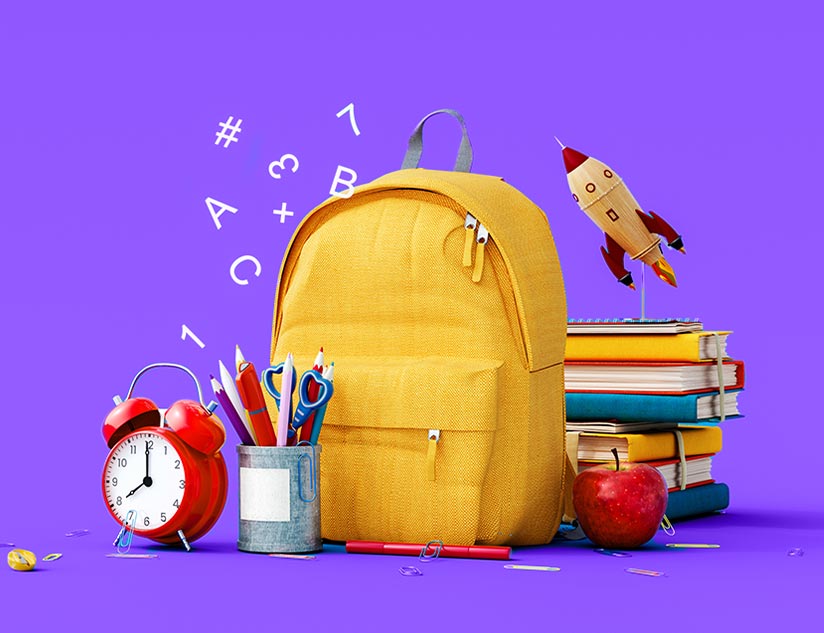Did you know that as of 2024, the average win rate for Requests for Proposals (RFPs) stands at a mere 43% across industries? Creating winning bids to capture opportunities in the education sector requires time to understand the institution, its needs and expectations, and its budget. This will help you craft an RFP response that is a cut above those of your competitors. In addition, check if they already have an incumbent provider and what you can offer beyond the existing products and services. Given the shift in the education sector toward hybrid and remote learning, choosing a powerful digital learning platform to create and distribute content can be a significant differentiator.
With the right digital educational publishing platform and out-of-the-box features, publishers can significantly increase their chances of winning RFP bids. The right platform will also allow you to offer the latest advances in AI in education, fulfilling the needs of schools and districts. Given the rapid digital transformation in the education sector and the increasingly competitive landscape for educational publishers, maximizing your chances of winning RFPs is the best way to spur business success and growth.
Essential Features of Digital Learning Platforms for Winning School RFPs
To stand out from the crowd, educational publishers today must offer comprehensive edtech solutions for the K-12 segment that support accessible, personalized learning. To do so, the first step is to choose the right digital educational publishing platform that will not only streamline your workflows but also ease education delivery and learning. Key features to look for in a platform include:
Content Authoring
A digital platform with in-built templates, themes, templates, and customizations can help you cut content creation time by up to 40%. It should power you to effortlessly integrate multimedia, gaming, and other interactive elements in your content to enhance learning experiences. Also, check that it supports you in creating content in multiple formats while ensuring compatibility across operating systems, browsers, and devices.
Standards Alignment
The digital education publishing platform should support you in complying with state RFP requirements for all core and supplementary instructional materials and assessments. Driving adoptions depends on ensuring that your offerings comply with industry standards, such as LTI, SCORM, etc., for seamless interoperability. Plus, adhering to the ADA and WCAG standards facilitates K-12 education technology providers and publishers to offer accessible, inclusive, and equitable learning experiences.
Student Data Protection
Complying with FERPA, COPPA, GDPR, and other data privacy regulations helps build trust and drive adoption. This is especially important against the backdrop of rising instances of cybercrime in the education industry, with a 105% increase in ransomware attacks in the K-12 segment and a 70% increase in higher education from 2022 to 2023.
Seamless Integrations
Choose a digital learning platform that will allow you to ease user experience with single sign-on facilities and easy integration with third-party tools. Schools should also be able to effortlessly integrate your offerings into their existing digital ecosystem to benefit from your edtech offerings for K-12, such as personalized learning, online and offline access to educational resources, support of an AI-powered learning assistant, automated scoring of assessments, and more.
With all these functionalities and more, you can craft an RFP bid that not only aligns with state standards but also offers value-added features for schools and districts.
Leveraging AI and Automation
Powered by the applications of AI in education, educational publishers can strengthen their RFP bids to not just meet the expectations of educational institutions but exceed them, easing both teaching and learning through a comprehensive suite of products and tools. We’ve already discussed the invaluable role of an AI-powered content authoring tool in easing curriculum alignment and winning RFP bids. Another key area where AI has proven indispensable is personalized learning.
A digital learning platform with in-built AI/ML-driven learning analytics, allows districts, schools, and educators to easily track the progress of each student, grade, and educational institution on a custom dashboard. Key learning analytics, such as content consumption patterns, time spent on a learning resource, assessment scores, etc., give valuable insights for educational publishers into what works and what doesn’t. It also helps educators learn about the strengths and weaknesses of their students to craft personalized learning paths and provide individualized support to enhance educational outcomes.
In addition, AI functionalities in a digital educational publishing platform ensure immense flexibility and scalability, while also increasing productivity and operational efficiency through automation and streamlined processes.
Superior Digital Learning Platform Support Drives Success
This is where choosing an experienced and reliable technology partner can be a game changer for educational publishers. With a partner who provides ongoing support and training for users of your platform, you can enhance customer experiences and build long-lasting relationships. Your RFP bid can include the services of experienced tech support without any need for additional resources from your organization. This way, you can save costs and offer a greater diversity of services with affordable pricing.
MagicBox™ is an award-winning, SaaS-based, cloud-hosted digital educational platform, designed especially for publishers with rich features and functionalities to ease business success. With a comprehensive suite of tools, including content authoring, an AI-powered learning assistant, online/offline eReader, and seamless interoperability, the digital learning platform facilitates the provision of cutting-edge K-12 education technology and learning resources. Speak to the Magic team today to learn how you can maximize your chances of RFP wins and state adoptions with the right digital learning platform.
















